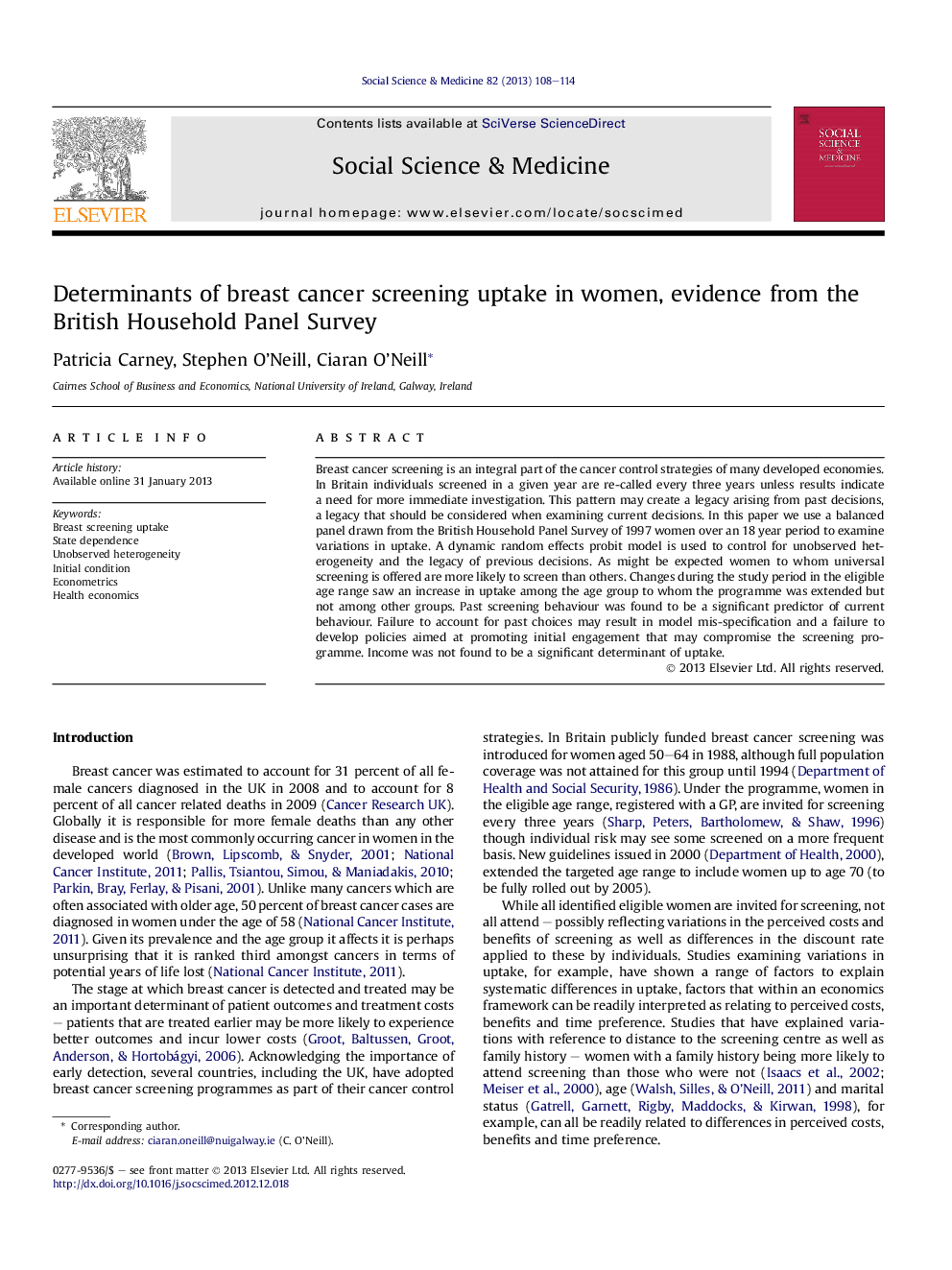| Article ID | Journal | Published Year | Pages | File Type |
|---|---|---|---|---|
| 952351 | Social Science & Medicine | 2013 | 7 Pages |
Breast cancer screening is an integral part of the cancer control strategies of many developed economies. In Britain individuals screened in a given year are re-called every three years unless results indicate a need for more immediate investigation. This pattern may create a legacy arising from past decisions, a legacy that should be considered when examining current decisions. In this paper we use a balanced panel drawn from the British Household Panel Survey of 1997 women over an 18 year period to examine variations in uptake. A dynamic random effects probit model is used to control for unobserved heterogeneity and the legacy of previous decisions. As might be expected women to whom universal screening is offered are more likely to screen than others. Changes during the study period in the eligible age range saw an increase in uptake among the age group to whom the programme was extended but not among other groups. Past screening behaviour was found to be a significant predictor of current behaviour. Failure to account for past choices may result in model mis-specification and a failure to develop policies aimed at promoting initial engagement that may compromise the screening programme. Income was not found to be a significant determinant of uptake.
► No significant role was found for income in explaining uptake of screening. ► Given the importance of past behaviour, initial contact with a programme is crucial to ongoing engagement. ► An expansion in the eligible age range saw an increase in uptake of screening among those targeted.
